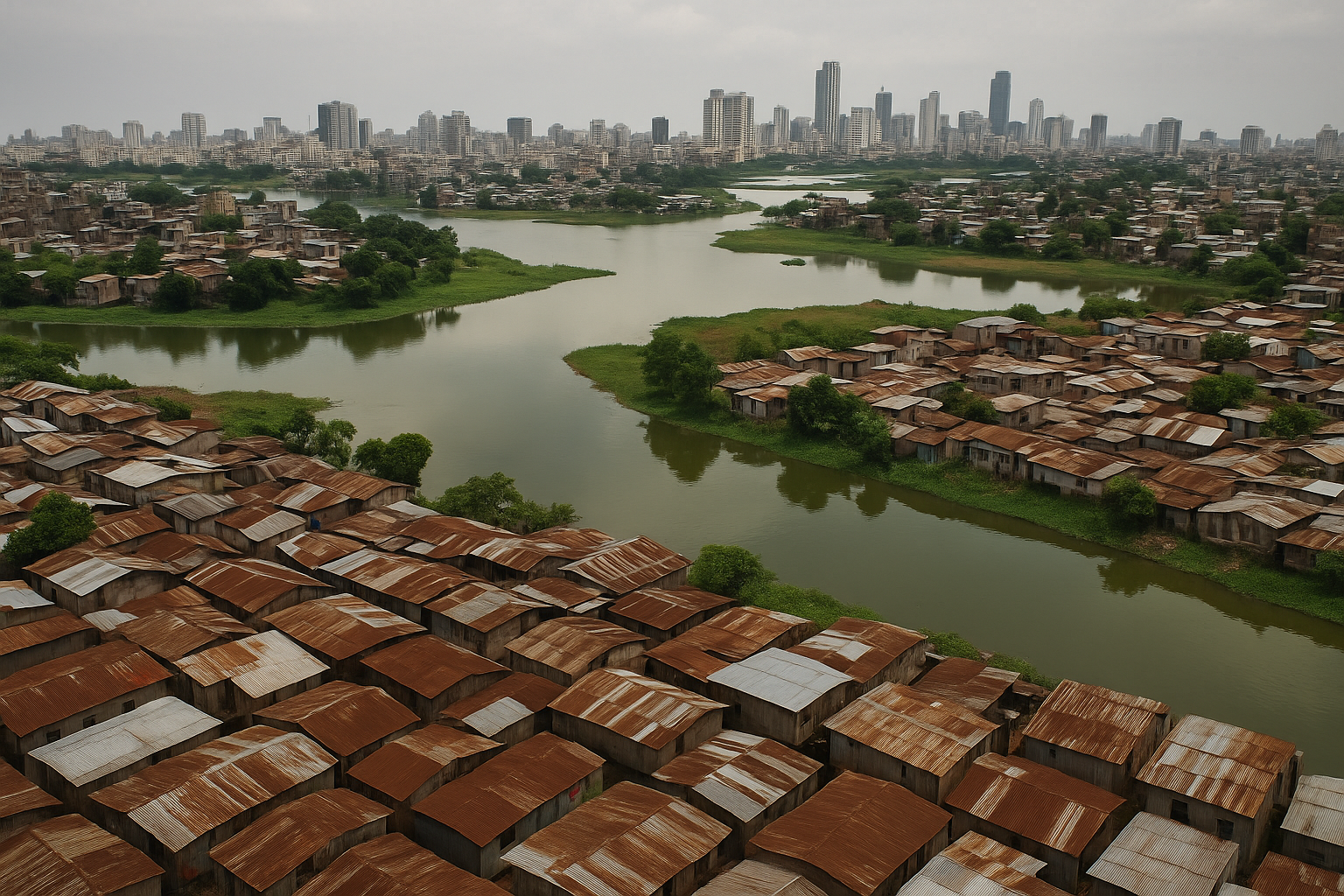AfDB Supports Climate-Resilient Visions in Four African Nations
The development of each LTV followed a deeply participatory process, involving over 175 stakeholders per country.

- Country:
- Ivory Coast
In a major stride toward climate action and sustainable development in Africa, the African Development Bank (AfDB), with support from the Africa Climate Change Fund (ACCF), has enabled Botswana, Gabon, Lesotho, and Liberia to develop Long-Term Visions (LTVs) for low-emission, climate-resilient economic growth. The project, implemented through the Africa NDC Hub, is part of AfDB’s broader commitment to helping African countries align with the Paris Agreement and achieve net-zero emissions through inclusive and country-driven strategies.
“Long-Term Visions provide a clear, country-driven pathway toward achieving net-zero emissions and building climate-resilient economies,” said Prof. Anthony Nyong, Director of Climate Change and Green Growth at AfDB.
The LTVs represent a transformative framework for development in Africa, integrating national goals with climate ambition across key sectors such as energy, agriculture, forestry, transport, and waste management, while emphasizing equity, capacity building, and climate finance.
A Participatory Path to Sustainability
The development of each LTV followed a deeply participatory process, involving over 175 stakeholders per country. These included representatives from government ministries, civil society organizations, private sector actors, and academia. This inclusive approach ensured that the visions are not only technically sound but also socially rooted and nationally owned.
The LTVs will guide the preparation of future Long-Term Strategies (LTSs), the revision of Nationally Determined Contributions (NDCs), National Adaptation Plans (NAPs), and Technology Needs Assessments (TNAs). They also serve as blueprints for attracting climate finance, ensuring climate justice, and reinforcing governance frameworks.
Botswana: Harnessing Solar Power for Sustainable Growth
Botswana’s LTV positions the country as a leader in renewable energy by emphasizing its vast solar potential. The strategy envisions leveraging solar investments to reduce emissions, expand energy access, and drive green job creation.
“This is an ambitious blueprint that will empower our nation’s future through strategic climate action,” said Boatametse Modukanele, Permanent Secretary at the Ministry of Environment and Tourism. “Botswana aims to be a beacon of resilience, sustainability, and hope.”
Botswana’s LTV also addresses land degradation and promotes climate-smart agriculture to safeguard rural livelihoods and food security.
Lesotho: Green Development in a Mountainous Nation
Lesotho’s vision embraces the country’s mountainous ecosystems and focuses on clean hydropower, sustainable water resource management, and inclusive rural development. Recognizing the country’s vulnerability to climate variability, the strategy promotes ecosystem-based adaptation and enhanced resilience in agriculture.
“This milestone, completed in 2024, reflects our firm commitment to a climate-resilient and low-emission future,” said Maphakamile Xingwana, Principal Secretary at the Ministry of Environment and Forestry.
The LTV aligns with national policy and development goals and serves as a foundation for revising the country’s NDC, NAP, and Technology Action Plans.
Gabon: A Global Carbon Sink with a Low-Carbon Vision
Known globally as a carbon sink, Gabon’s LTV strengthens its reputation as a champion of sustainable forest management and biodiversity protection. The vision integrates climate action into its economic diversification strategy, including efforts to reduce dependency on oil and boost sectors like sustainable agriculture, eco-tourism, and green industries.
Despite recent political transitions, Gabon’s climate policy direction remains firm, reflecting national ownership, robust governance, and a commitment to climate finance innovation.
Liberia: Coastal Resilience and Green Growth
Liberia’s LTV is anchored in climate equity, green growth, and coastal resilience, building upon national frameworks such as the Liberia Rising Vision 2030. The strategy incorporates nature-based solutions, energy access, and infrastructure adaptation to protect vulnerable communities—particularly along Liberia’s extensive coastline.
“This launch marks not an end, but a new beginning,” said Rita Effah, ACCF Coordinator. “The LTV is a vital tool to inform policy, mobilize resources, and guide the path towards resilient infrastructure development.”
The LTV’s inclusive formulation ensures alignment with Liberia’s socioeconomic goals and underscores the urgency of climate-responsive planning.
Cross-Cutting Themes and Continental Impact
All four countries integrated cross-cutting themes in their visions, including:
-
Gender equality and the role of women in climate action.
-
The principle of a just transition, ensuring no one is left behind.
-
Building technical and institutional capacity for implementation.
-
Securing climate finance and leveraging partnerships for scale-up.
The AfDB's support is part of a continental push to help African countries develop ambitious, forward-looking climate strategies that align development needs with environmental stewardship.
By supporting Botswana, Gabon, Lesotho, and Liberia in crafting their Long-Term Visions, the African Development Bank and the Africa Climate Change Fund have helped chart a new course toward climate-resilient, low-emission futures in Africa. These visions will serve as foundational tools for strategic policy-making, investment mobilization, and global climate engagement, ensuring that African nations are not just participants, but leaders in shaping the future of climate action.
ALSO READ
Surge in IREDA's Loan Sanctions Fuels Renewable Energy Growth
CleanMax and Toyota Tsusho India Team Up for Renewable Energy Push
KPI Green Energy sets up SPV to focus on renewable energy
Madhya Pradesh Leaders Forge Ahead with Renewable Energy Agenda in Delhi Meetings
Catalyzing India's Green Shift: A Look at the IVCA Renewable Energy Summit 2025










